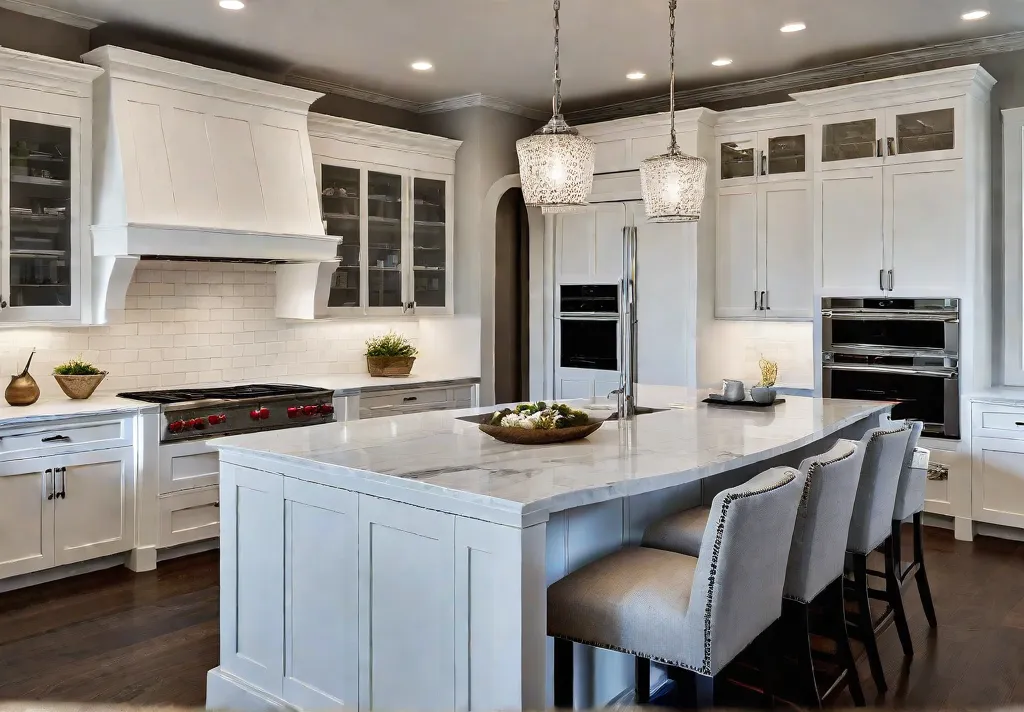As the heart of the home, the kitchen should nourish the body and soothe the soul. In traditional kitchen design, the island is a centerpiece, a multifunctional haven where culinary artistry and cozy gatherings converge. From its humble beginnings as a workstation, the kitchen island has evolved into a canvas for personal expression, a testament to the harmonious marriage of form and function.
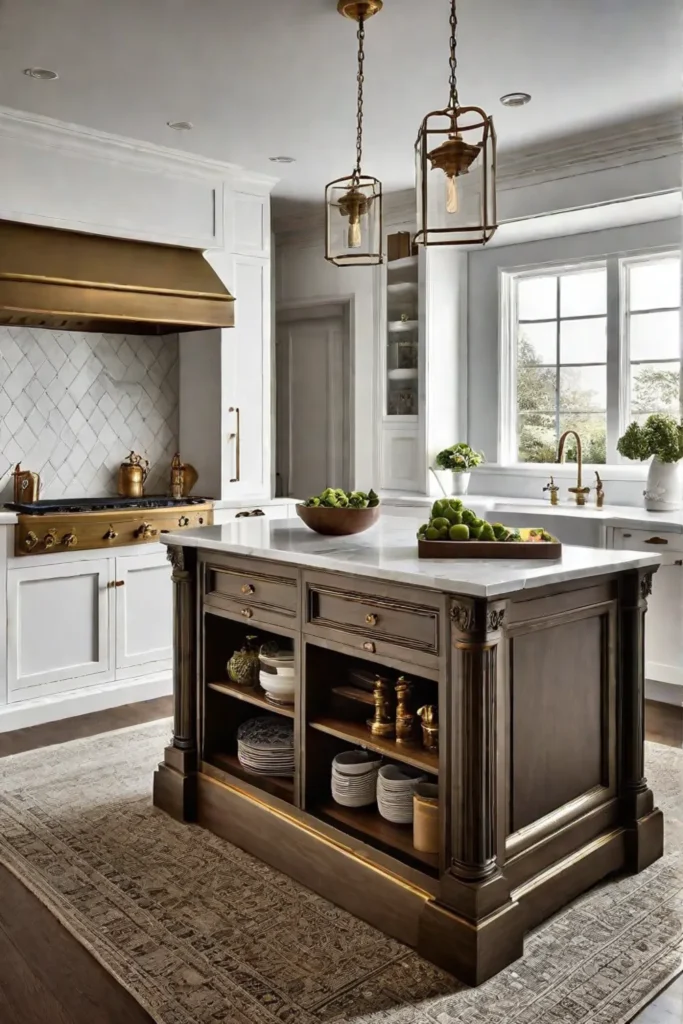
In this article, we’ll delve into the timeless allure of traditional kitchen island designs, exploring the intricate details that elevate these spaces from mere utility to veritable sanctuaries. Join me, Sienna Holland, as we journey through thoughtful proportions, inviting seating arrangements, ingenious storage solutions, and seamless integrations that blur the lines between cooking and living.
Choosing the Right Island Size
Rightening the island size is crucial for a functional and aesthetically pleasing kitchen. As an interior design expert, I always emphasize the importance of proportionality and proper space planning.
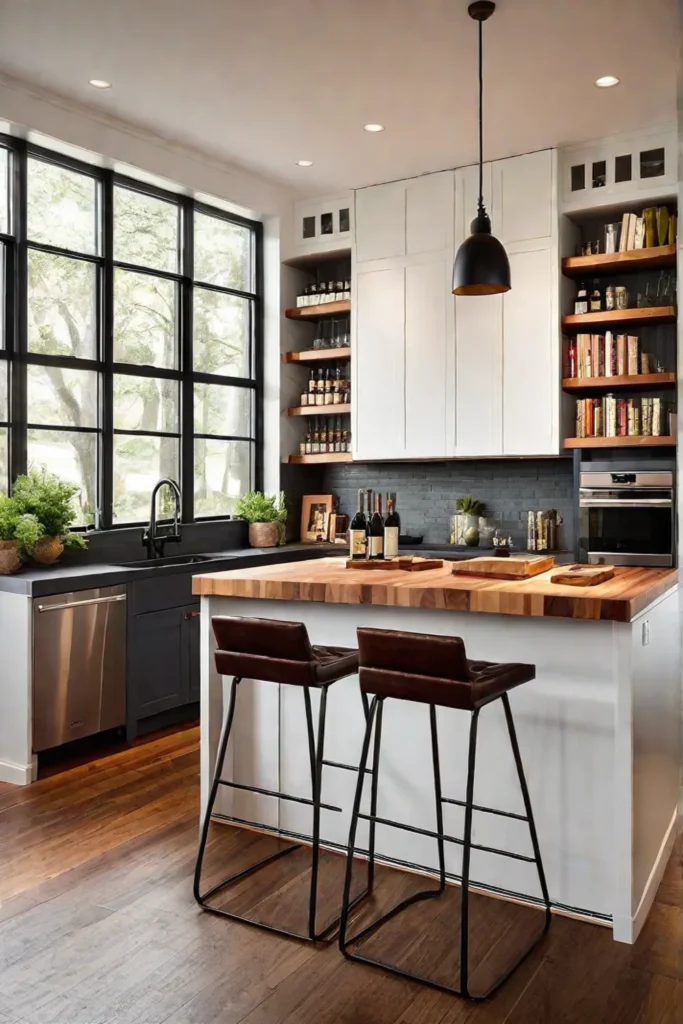
Small Kitchen Islands
I recommend considering a petite island or a space-saving rolling cart for compact kitchens. These compact solutions can provide valuable prep space and storage without overwhelming the room. A general rule of thumb is allowing at least 42 inches of clearance around the island for comfortable movement – an interesting fact essential for avoiding a cramped feel.
One of my top practical tips? If you have a galley-style kitchen, a slim peninsula design can be a lifesaver, offering extra counter space while seamlessly integrating into the existing layout.
Large Kitchen Islands
Ah, the luxury of spacious kitchens! Here, you can truly indulge in a grand, expansive island that serves as a showpiece and a multi-functional workstation. I often design large islands with dedicated zones for food prep, casual dining, and home office use. The possibilities are endless when you have ample square footage to play with.
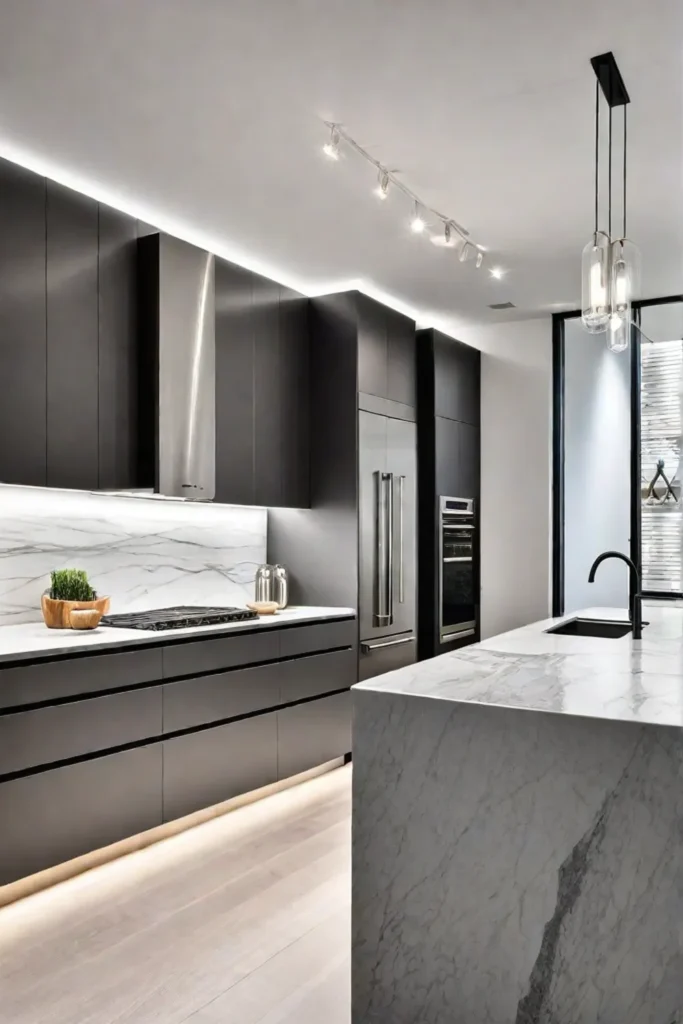
But remember, even in a sprawling kitchen, proper clearance and traffic flow around the island are key. The golden rule is a minimum of 42 inches, but I prefer to go even wider for a more luxurious, airy feel.
To answer your question about standard dimensions, a small island typically ranges from 4 to 6 feet long and 2 to 3 feet wide, while large islands span 8 to 10 feet long and 4 to 6 feet wide. But don’t get too caught up in numbers – the key takeaway is to select an island size that optimizes functionality without overcrowding your kitchen.
Now, let’s discuss the fun part: seating options for your traditional kitchen island!
Seating Options for Traditional Islands
Incorporating stylish seating around your kitchen island is a game-changer, transforming it into a cozy gathering spot for casual meals and lively conversations. As a home decor enthusiast, I believe that seating options should complement the overall aesthetic and offer uncompromising comfort and functionality.
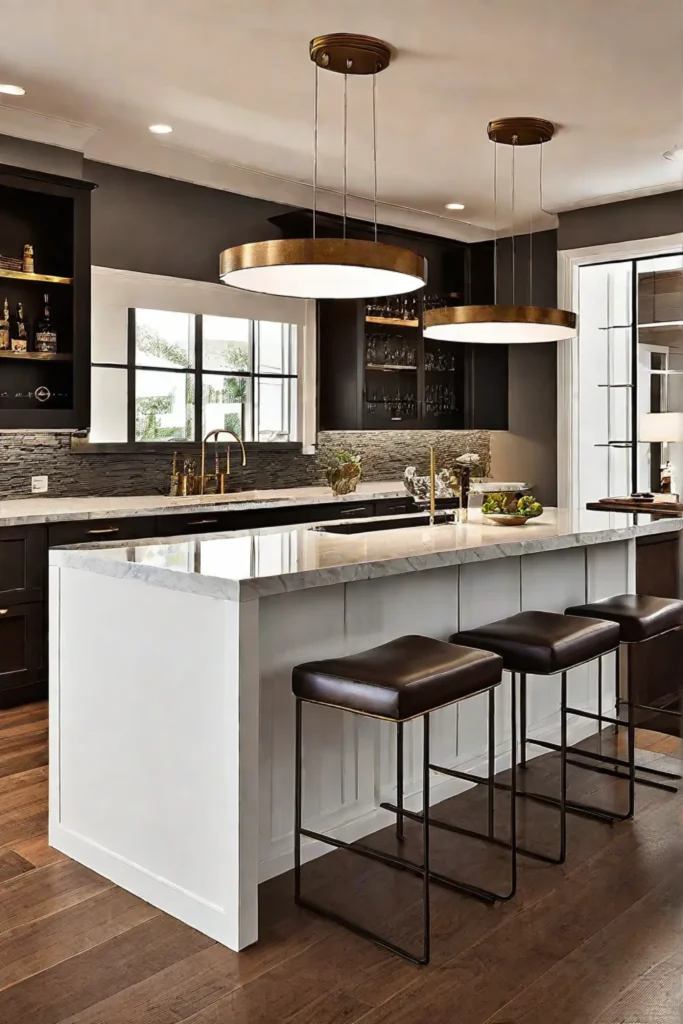
Bar Stools & Counter Stools
Undoubtedly, bar and counter stools are the most popular seating choices for kitchen islands. With a standard counter height of 36 inches and a bar height of 42 inches, these stools provide the perfect perch for enjoying a quick snack or sipping a refreshing beverage. When selecting bar stools, I always recommend opting for upholstered options with backrests—not only do they add a touch of elegance, but they also offer unparalleled comfort and ensure your guests can linger for hours without discomfort.
Banquette Seating
A built-in banquette is an excellent choice for those seeking a more intimate and cozy seating arrangement. This space-saving solution provides ample seating and adds a charming, traditional touch to your kitchen. Imagine sinking into plush cushions while enjoying a leisurely breakfast or catching up with loved ones over tea. Banquettes are versatile, allowing you to mix and match different materials and styles to create a truly personalized look.
When it comes to seating materials and styles, the options are endless. From classic wooden stools with intricate carvings to sleek, upholstered benches in rich fabrics, the choices reflect your unique taste and the overall aesthetic of your traditional kitchen. Don’t be afraid to mix and match different textures and patterns to create a visually captivating and inviting seating area.
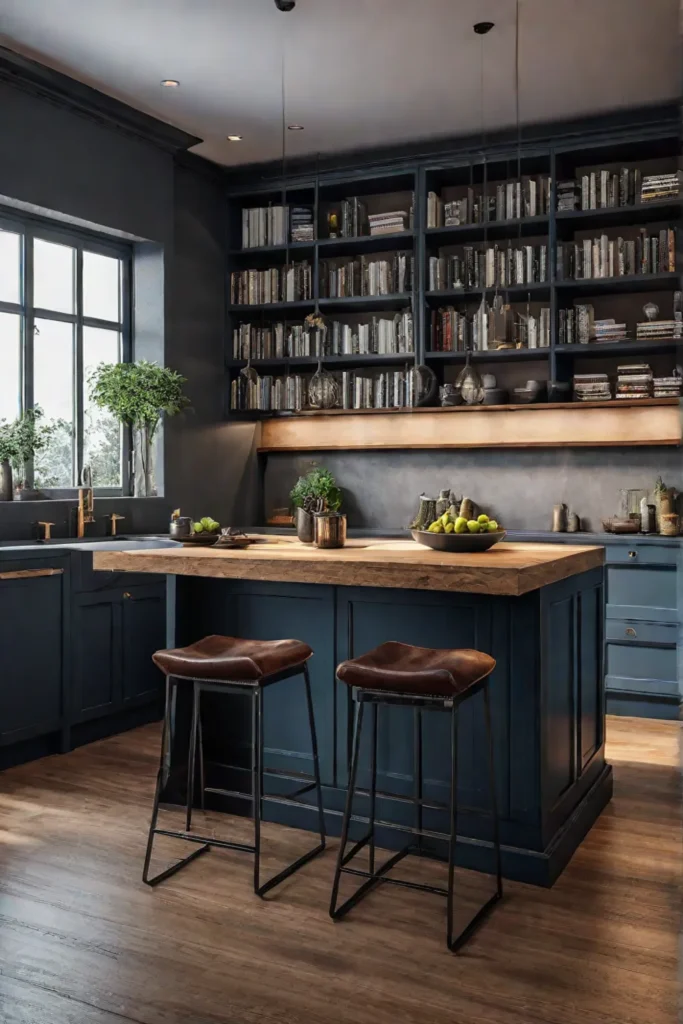
Remember, the key to successful seating around your kitchen island is striking the perfect balance between style and comfort. By carefully considering the various options, you can create a warm and welcoming space that encourages social interaction and transforms your kitchen into the heart of your home.
As we move on to the next section, let’s explore how traditional island designs can maximize storage while maintaining their timeless charm.
Maximizing Storage with Traditional Island Designs
As a home decor enthusiast, I believe a well-designed kitchen island can be aesthetically pleasing and highly functional. By maximizing storage, traditional island designs offer a practical solution to decluttering your culinary workspace while maintaining a timeless charm.
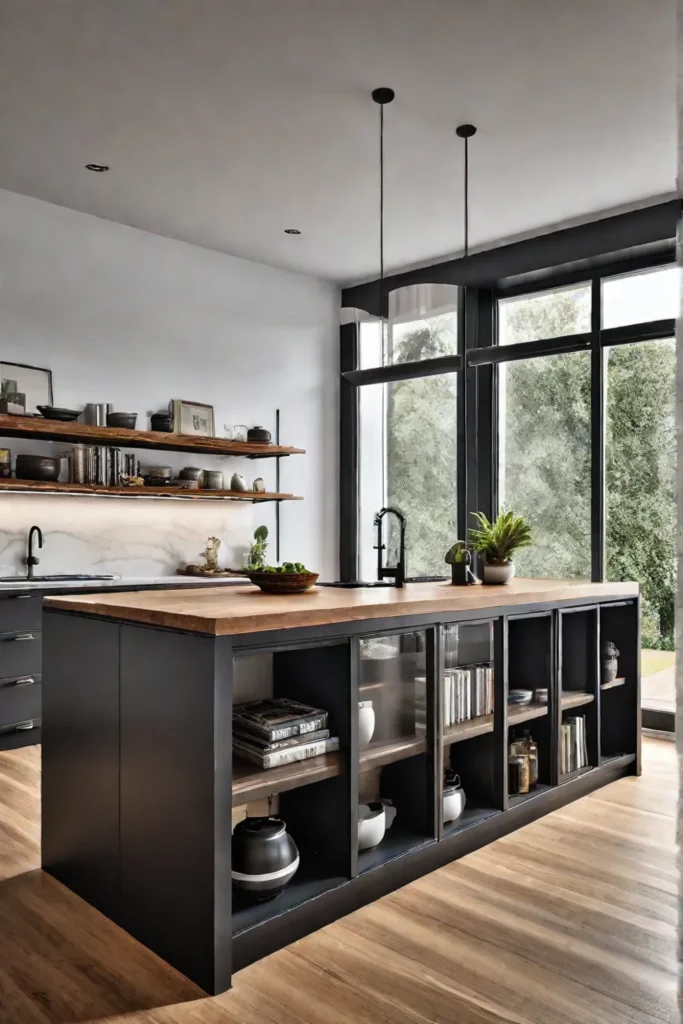
Cabinetry & Drawers
Cabinetry and drawers are the backbone of any efficient kitchen storage system. Deep drawers accommodate bulky pots, pans, and bakeware, while shallow drawers are perfect for organizing utensils and cutlery. Incorporate pull-out shelves and organizers to easily access stored items, making your cooking experience a breeze.
Open Shelving & Display
Open shelving adds a touch of warmth and character to traditional kitchen islands. Utilize these shelves to display your favorite cookbooks, decorative pieces, or frequently used items within easy reach. Not only does this create a visually appealing focal point, but it also promotes efficient organization and accessibility.
Specialty Storage Solutions
Get creative with specialty storage solutions tailored to your unique needs. Consider incorporating a built-in wine rack, spice drawer organizers, or a dedicated spot for your beloved kitchen gadgets. These innovative solutions maximize storage and add a personalized touch to your traditional island design.
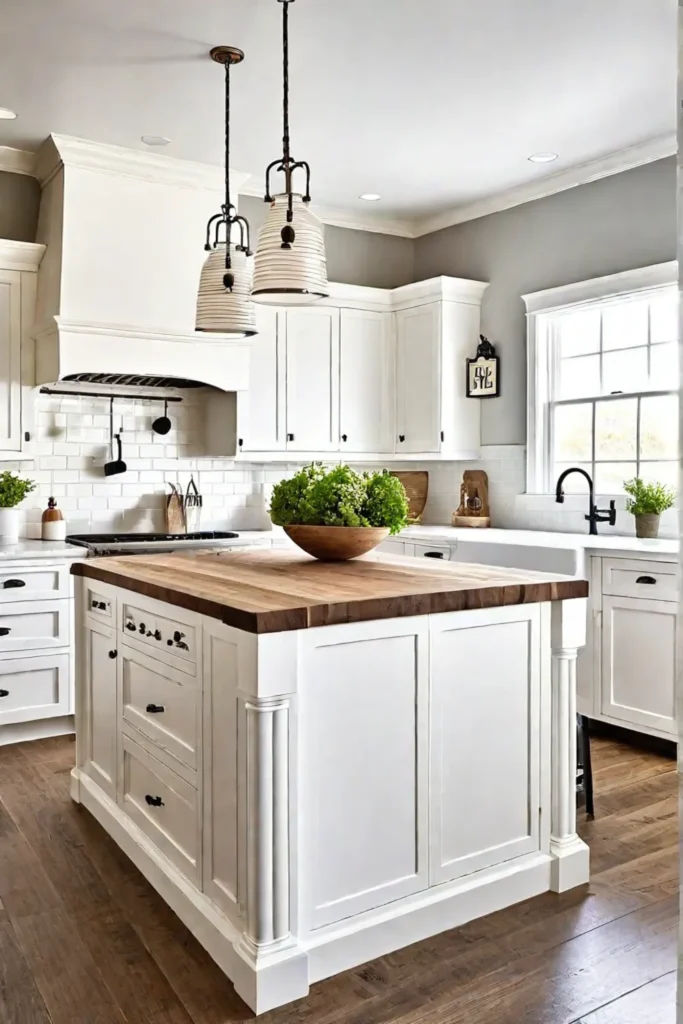
Innovative storage solutions for kitchen islands can range from integrated appliance garages to concealed trash and recycling compartments. Thinking outside the box allows you to create a functional and stylish island that seamlessly blends with your traditional kitchen aesthetic.
Ultimately, the key takeaway is to optimize island storage by incorporating a variety of storage options that cater to your specific needs. With careful planning and attention to detail, your traditional kitchen island can blend classic style and modern functionality harmoniously.
Integrating cooktops into traditional islands is another exciting design element that can elevate your kitchen space’s functionality and visual appeal.
Integrating Cooktops into Traditional Islands
As a culinary enthusiast, I can’t help but swoon over the idea of incorporating a cooktop into a traditional kitchen island. It creates a cozy and inviting cooking hub, fostering interaction and camaraderie while you whip up delectable dishes. However, proper ventilation and safety measures are crucial when introducing heat sources into your island design.
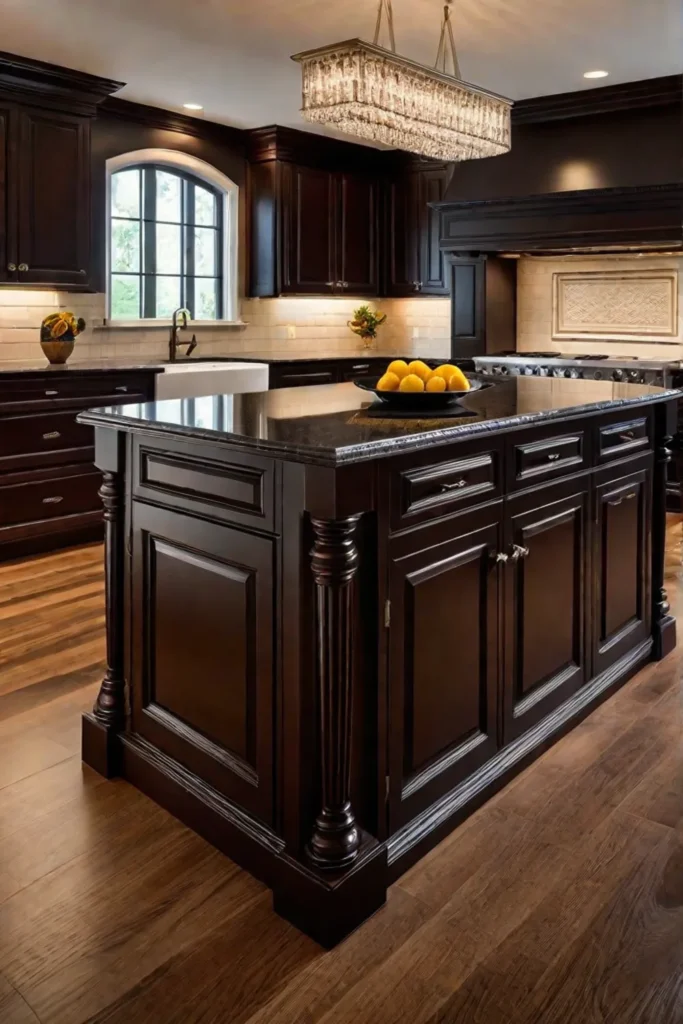
Gas Cooktops
Ah, the classic gas cooktop! There’s something undeniably satisfying about the instant heat control and those mesmerizing flames. For islands, I recommend opting for a sleek, integrated design that seamlessly blends with the island’s aesthetic. Don’t forget to factor in the size and layout when selecting your cooktop configuration.
Electric Cooktops
Electric cooktops offer a modern and clean look, perfect for those who prefer a more streamlined vibe. While they may lack the theatrical flair of gas flames, they make up for it with their precise temperature control and easy-to-clean surfaces. Just choose a model that complements your island’s design language.
Induction Cooktops
An induction cooktop might be your perfect match if you’re all about energy efficiency and lightning-fast heating. These bad boys use electromagnetic induction to heat your cookware directly, resulting in a cooler kitchen and faster cooking times. Plus, their smooth surfaces are a breeze to keep spotless.
One nifty solution for island cooktops is a downdraft ventilation system. These clever gadgets eliminate the need for bulky overhead hoods, keeping your island’s airspace clear and unobstructed. Genius, right?
The pros and cons of different cooktop types for kitchen islands depend on personal preference and lifestyle. Gas cooktops offer a classic cooking experience but require more ventilation. Electric and induction cooktops are sleek and modern but may lack the instant heat control of gas. Weigh your options carefully; remember, safety should always be the top priority.
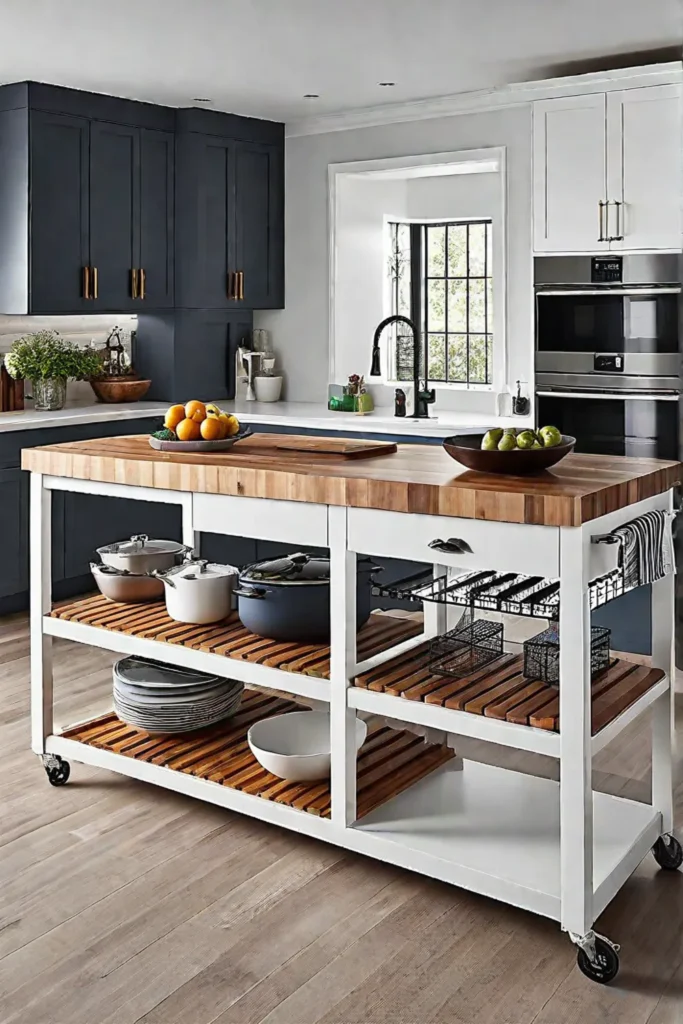
The key takeaway? Carefully plan the integration of a cooktop into your island to ensure functionality, safety, and a seamless blend of form and function. With a little creativity and attention to detail, your traditional kitchen island can become the heart of your culinary adventures.
Speaking of islands, let’s move on to the next section: Adding Sinks to Traditional Kitchen Islands.
Adding Sinks to Traditional Kitchen Islands
Single Basin Sinks
As a homeowner with a keen eye for design and functionality, I can’t emphasize the importance of considering a sink when planning your traditional kitchen island. This simple addition can elevate your cooking experience, providing a dedicated workspace for all your culinary endeavors.
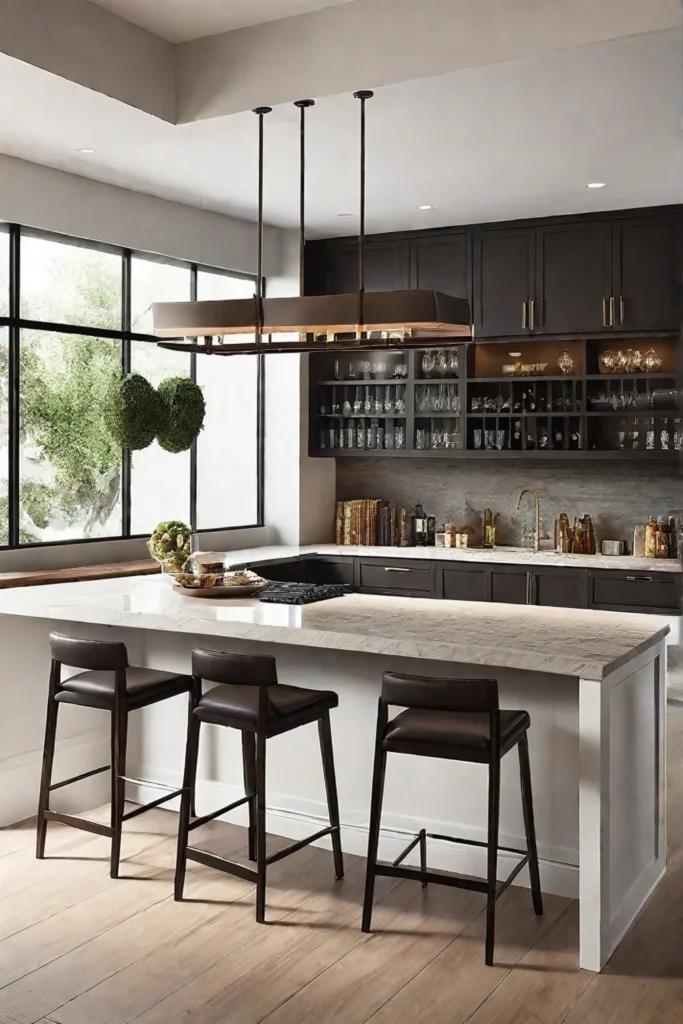
For those who prefer a minimalist approach, a single-basin sink is a classic choice. Its simplicity allows it to seamlessly blend into any traditional kitchen design. Whether you’re washing large pots and pans or simply rinsing vegetables, a deep single-basin sink offers ample space and convenience. Pro tip: Choose a deeper sink for versatility in handling those bulky kitchen items.
Double Basin Sinks
If you’re a multitasking maven in the kitchen, a double basin sink might be the perfect fit. This practical design allows you to separate tasks, such as washing and rinsing, or even dedicate one basin to food preparation. Imagine having a designated space for cleaning while the other basin remains dry and clutter-free—a true game-changer for efficient workflow.
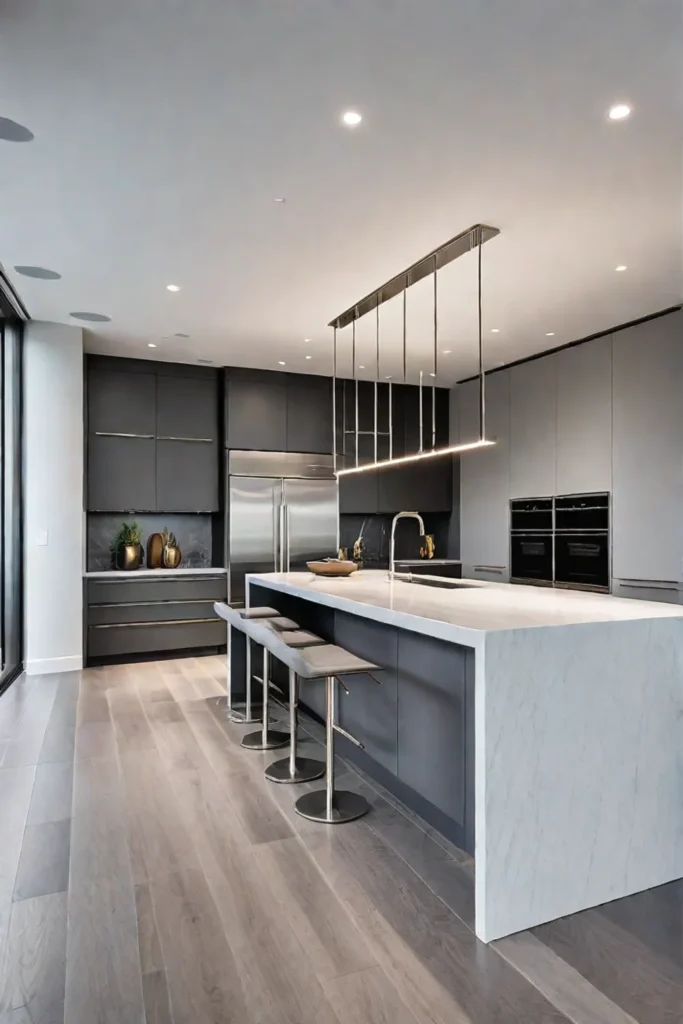
Farmhouse Sinks
Ah, the farmhouse sink – a timeless classic that exudes rustic charm and effortless elegance. These deep, apron-front sinks add a touch of vintage flair to your traditional kitchen island and offer unparalleled functionality. With their generous depth and spacious basins, you’ll have ample room for even the most demanding culinary tasks.
When selecting a sink for your kitchen island, consider factors such as the overall design aesthetic, size, and cooking habits. Remember, a prep sink in the island can be a game-changer, supplementing your main kitchen sink and providing an additional workspace for all your culinary adventures.
Integrating a sink into your traditional kitchen island is a testament to forming a meeting function. It enhances the overall aesthetic and provides a dedicated workspace for various kitchen tasks, streamlining your cooking process and making every culinary endeavor a joy.
Let’s explore the finishing touches that will bring your traditional kitchen island to life.
Conclusion
One undeniable truth emerges as we conclude our exploration of traditional kitchen island designs. These multifaceted spaces can transform the heart of your home into a refreshing oasis. By thoughtfully considering every detail – from the proportions that foster fluid movement to the seating arrangements that beckon lingering conversations, from the innovative storage solutions that declutter your culinary canvases to the seamless integration of functional elements – you create a harmonious sanctuary where culinary artistry and cherished memories intertwine.
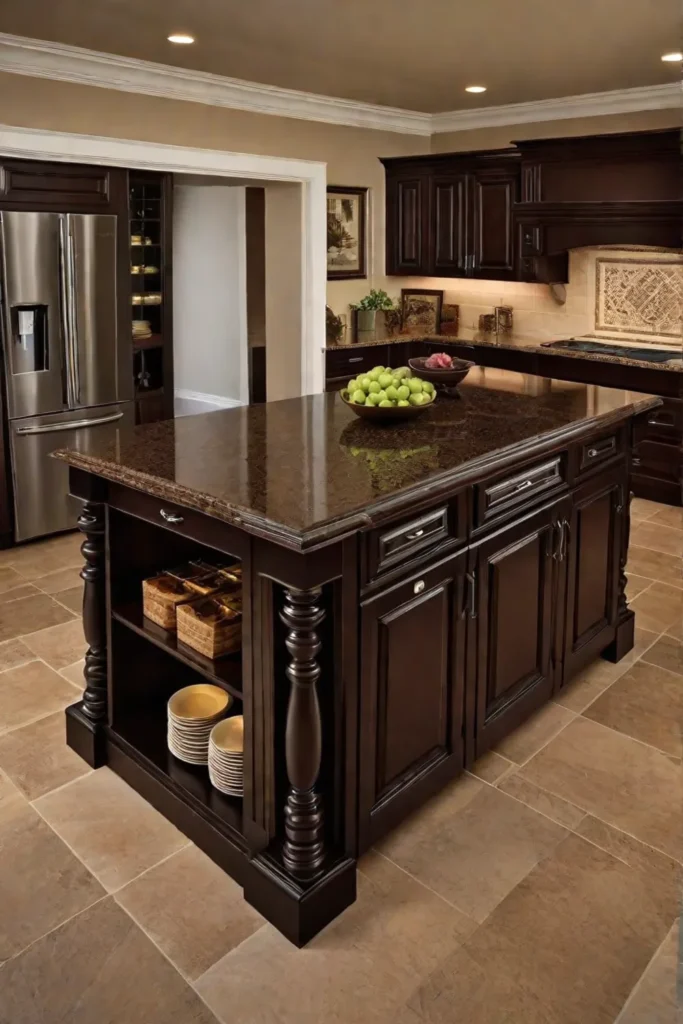
Remember, the true essence of a traditional kitchen island lies not merely in its aesthetic appeal but in its ability to nurture the soul. It is a space that invites us to slow down, savor the present moment, and find solace in life’s simple pleasures. So, embrace the timeless charm of these designs, and let your kitchen island become the heartbeat of your home, where nourishment extends far beyond the physical realm, touching the depths of your spirit.
